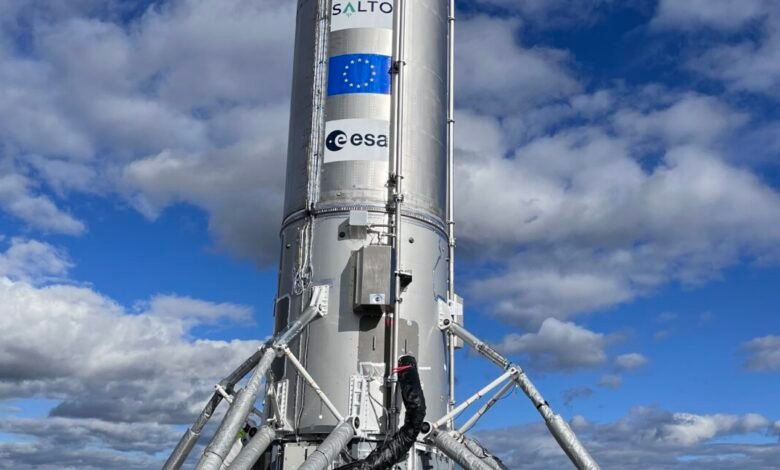Europe’s Reusable Rocket Program Gains Momentum After Slow Start

▼ Summary
– The European Space Agency and its contractors are making credible progress on reusable rockets after a slow start.
– ArianeGroup has completed integration of the Themis prototype rocket on a launch pad in Sweden for testing landing technologies.
– Low-altitude hop tests for vertical landing capabilities could begin by late this year or early next year.
– Europe’s reusable rocket development was delayed despite SpaceX and Blue Origin demonstrating successful landings in 2015.
– The European Space Agency initially focused on the traditional Ariane 6 design before starting reusable vehicle programs in 2017.
Europe’s journey toward reusable rocket technology is finally gaining traction after a slow and cautious start. Recent developments signal a meaningful shift in strategy, as the continent works to catch up with global leaders in spaceflight reusability. ArianeGroup’s recent announcement marks a significant step forward, with the integration of the Themis reusable rocket prototype on its launch pad in Sweden. This milestone sets the stage for upcoming low-altitude hop tests, which could begin as early as late this year or early next. These tests are essential for validating the vertical landing capabilities required for first-stage recovery after orbital missions.
The current progress stands in stark contrast to Europe’s earlier hesitation. When SpaceX and Blue Origin successfully demonstrated vertical rocket landings in 2015, European efforts were still largely focused on conventional expendable launch systems. At that time, resources were heavily directed toward the development of Ariane 6, a medium-lift rocket designed without reusability in mind. This traditional approach left Europe lagging as competitors rapidly advanced reusable technology.
By mid-2017, however, the European Space Agency began laying the groundwork for its own reusable launch vehicle initiatives. These efforts were designed to explore and eventually master the technologies needed for rocket recovery and reuse. The Themis program emerged as a central component of this new direction, aiming to test cryogenic propulsion, landing guidance, and stage recovery in a series of incremental experiments.
The ongoing work on Themis represents more than just technical validation, it reflects a broader European commitment to securing a competitive position in the global launch market. Reusability is no longer seen as an optional innovation but as a necessary evolution for affordable and sustainable access to space. As prototype testing advances, Europe is positioning itself to close the gap with other major spacefaring nations and ensure its continued relevance in an increasingly dynamic industry.
(Source: Ars Technica)

